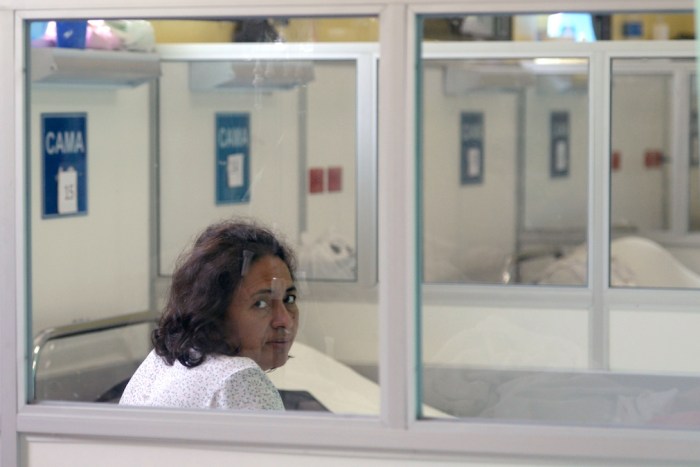Affecting as many as 5 million women in the U.S., polycystic ovary syndrome is one of the most common causes of female infertility, but most women don’t know how treatable PCOS actually is.
Reproductive-age women with the condition have higher levels of androgens, a male hormone females also have, that can halt or affect ovulation. Other symptoms include irregular menstrual cycles, excess hair growth or loss, acne, diabetes and more.
As September is PCOS Awareness Month, Metro looked to Dr. Eric J. Forman, medical and laboratory director at Columbia University Fertility Center in New York, to learn more.
“It’s important to raise awareness because you have a lot of options to help women with PCOS, medical and non-medical, to improve their chances of having a healthy pregnancy,” Dr. Forman said.
PCOS treatment
Treatment for polycystic ovary syndrome can vary, depending on what a woman’s priorities are when it comes to pregnancy.
“If the priority is to focus on these underlying problems and not fertility yet, a birth control pill is a first line of defense,” Dr. Forman said. “It improves irregular bleeding and irregular menstrual patterns. It doesn’t correct the ovulation issue, but it allows them to have a regular cycle.”
Polycystic ovary syndrome can cause women to resist insulin, which can affect weight and ovulation, so diabetes medication Metformin, an insulin sensitizer, “can help women with PCOS use insulin better,” Dr. Forman added.
Lifestyle modifications such as modest weight loss, diet, lowering carbohydrate intake and exercise can also help some PCOS patients ovulate more regularly.
If a woman’s primary goal is to get pregnant ASAP, there are several medications to induce ovulation, from pills like Letrozole or Clomid to injectable forms of hormones.
However, “one of the biggest risks of ovulation induction is multiple pregnancies, so twin pregnancies result in about eight to 10 percent of pregnancies after those oral medications,” Dr. Forman said. “And with injectables, it can be even higher than that if not closely monitored.”
Most women with polycystic ovary syndrome are able to get pregnant without in vitro fertilization (IVF), Dr. Forman said.

Is there a cure for PCOS?
“The origins of PCOS have been highly debated over the years, and there are several possible causes and mechanisms,” Dr. Forman said, but there is no official cause of or cure for polycystic ovary syndrome.
Earlier this year, French scientists found that PCOS may be triggered in the womb, and they hope to start human trials on a possible cure later this year. Dr. Forman said the study found nothing pariticularly new, but was “intriguing, and an intervention to prevent PCOS would be exciting.”
However, the studies are preliminary mouse studies “and human studies are needed and a long way off.” He added there likely is more than one type — and cause — of the condition, “so this study may just lead to treatment or prevention of some, but not all, cases of PCOS,” Dr. Forman said.
He hopes the main takeaway of PCOS Awareness Month is that women learn it is highly treatable.
With safe options to restore ovulation, “it’s very rare that PCOS is the reason why a woman cannot have children of her own if that is her wish,” he said. “However, it is important to keep in mind some of the long-term health consequences of PCOS, such as metabolic changes that increase the risk of gestational diabetes, and work to optimize health before and after pregnancies.”



















